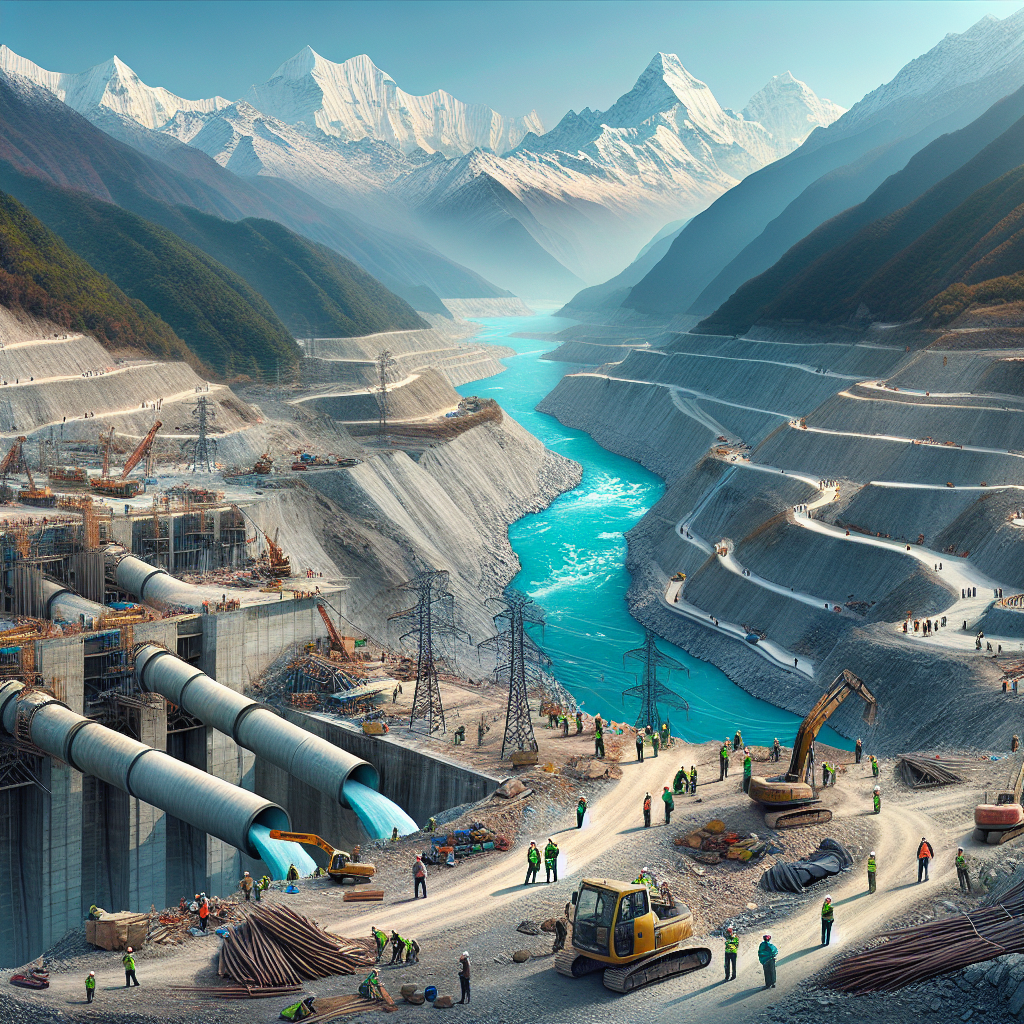IREDA, SJVN, GMR Energy, and NEA Partner to Develop 900 MW Upper Karnali Hydro Project in Nepal
Strategic Cross-Border Initiative Aims to Bolster Regional Energy Security and Renewable Growth.

- Country:
- India
The Indian Renewable Energy Development Agency Ltd. (IREDA) has joined forces with SJVN Ltd., GMR Energy Ltd., and the Nepal Electricity Authority (NEA) to launch the 900 MW Upper Karnali Hydro-electric Project in Nepal. This joint venture represents a landmark step toward enhancing regional energy security, fostering renewable energy development, and promoting cross-border collaboration.
The Joint Venture Agreement (JVA), formalized in New Delhi, establishes a framework for the development, construction, operation, and maintenance of the hydropower project under a Build-Own-Operate-Transfer (BOOT) model. The project will operate for a 25-year term starting from the Commercial Operation Date (CoD), after which it will be transferred to the Nepalese government.
Strengthening Regional Cooperation Through Sustainable Energy
Shri Pradip Kumar Das, Chairman and Managing Director (CMD) of IREDA, emphasized the transformative impact of the project, stating, “This agreement underscores our commitment to advancing sustainable energy development in the region. The Upper Karnali Hydro-electric Project showcases the power of cross-border collaboration to deliver substantial economic and environmental benefits while addressing regional energy challenges.”
The Upper Karnali project is expected to:
- Generate 900 MW of clean and renewable electricity to support regional energy demands.
- Strengthen India-Nepal bilateral relations through shared energy development goals.
- Contribute to reducing greenhouse gas emissions by substituting fossil-fuel-based energy sources with hydropower.
Key Features and Impact of the Project
- The project will cater to growing energy demands in Nepal and India, creating opportunities for power export and import between the two nations.
- Construction and operational phases will generate significant employment for local communities in Nepal.
- The project's environmentally friendly design will align with global commitments to climate change mitigation.
Stakeholders and Collaboration
The agreement was signed in the presence of senior representatives from IREDA, SJVN, GMR Energy Ltd., and NEA. These entities bring extensive expertise in renewable energy, hydropower development, and cross-border project management.
IREDA
IREDA, a leading public sector organization under the Ministry of New and Renewable Energy (MNRE), plays a critical role in financing and promoting renewable energy projects in India and beyond.
SJVN Ltd.
A joint venture between the Government of India and the Government of Himachal Pradesh, SJVN specializes in large-scale hydropower and renewable energy projects.
GMR Energy Ltd.
A subsidiary of GMR Group, the company is a key player in the energy sector, with expertise in developing power projects across India and internationally.
Nepal Electricity Authority (NEA)
NEA is Nepal's national power utility, responsible for electricity generation, transmission, and distribution in the country.
Looking Ahead
The Upper Karnali Hydro-electric Project will set a benchmark for sustainable and collaborative energy development in South Asia. By prioritizing clean energy, the project aligns with Nepal's aspirations to harness its vast hydropower potential while complementing India's renewable energy goals.
The collaboration is expected to pave the way for further partnerships in renewable energy between India, Nepal, and other regional stakeholders, fostering a greener and more interconnected South Asia.










